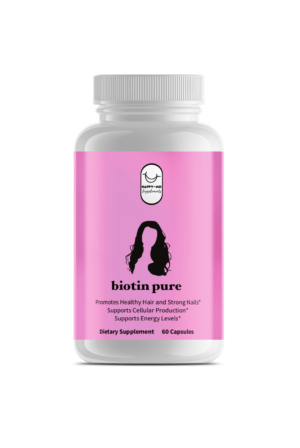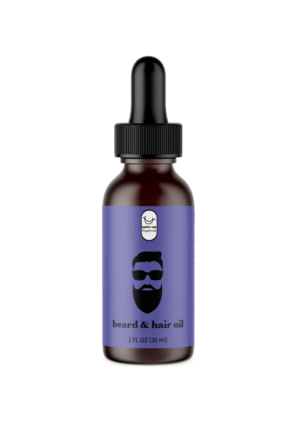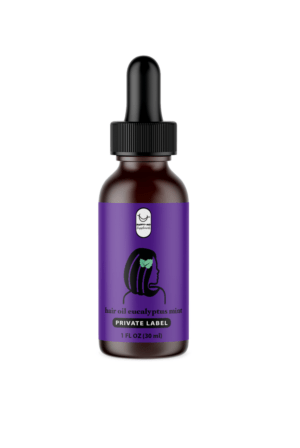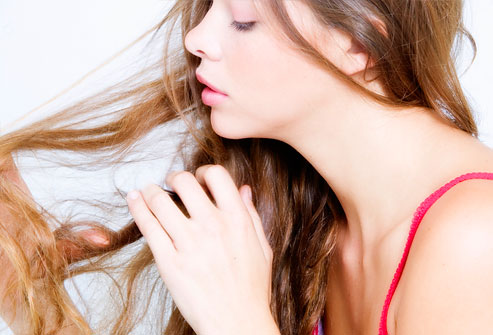
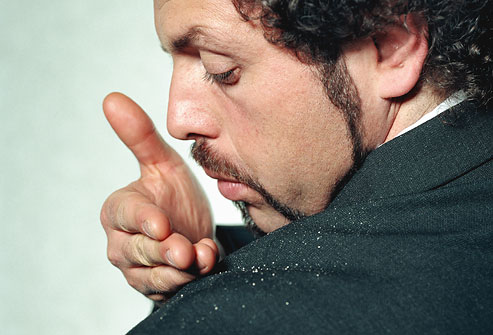
2 / 18
Dandruff isn't contagious. So how do you get it? Doctors aren't sure, but one theory is that it may be due to an overgrowth of a fungus. Other possible risk factors include oily skin, stress, obesity, cold, dry weather, and having eczema or psoriasis. Although it's embarrassing -- and the itching can be bothersome -- dandruff isn't harmful.
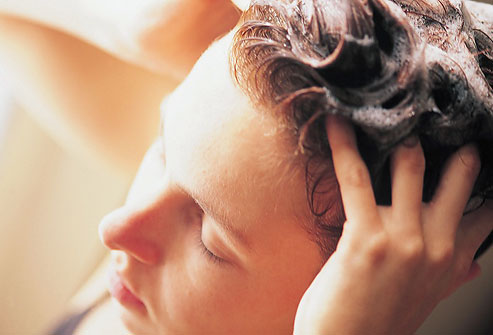
3 / 18
To decrease the buildup of dandruff's dead skin cells, try using an antidandruff shampoo daily. Leave shampoo on for 5 minutes, then rinse well. You may need to try several dandruff shampoos to find one that works best for you. If one stops working, try another. If that doesn't help, call your doctor.
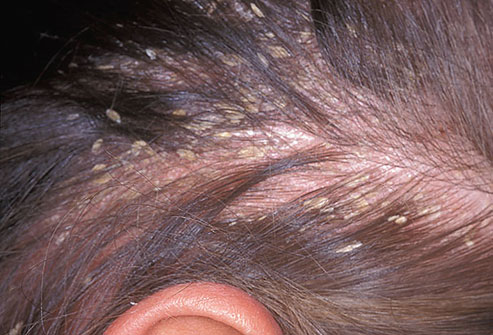
4 / 18
If the dandruff flakes you see are greasy and yellow, you may have seborrheic dermatitis. It's an inflammatory skin condition that can occur where there are lots of oil glands, like the scalp and face. Though seborrheic dermatitis is related to hormones, fungus and even some neurological conditions like Parkinson’s disease or HIV, these conditions are all treated the same as dandruff: with antidandruff shampoos.
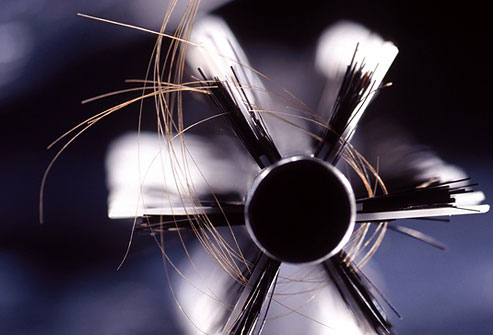
5 / 18
It's not a perfect measure, but some experts estimate that we may shed up to 100 or more hairs a day. That's not cause for alarm, nor does it mean you're going bald. About 90% of your 100,000 hair follicles are producing hair at any given time. The other 10% are in a resting (telogen) phase, and the hair falls out after about 2 to 3 months. It's replaced by new hair, and the growth cycle starts over again.
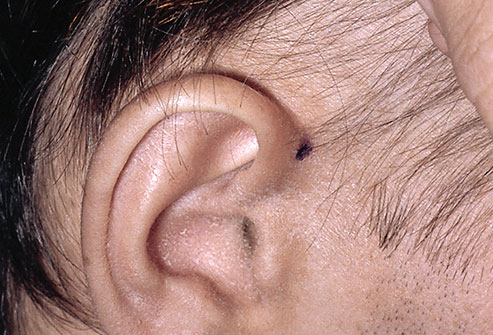
6 / 18
A shock to your system -- surgery, vaccinations, giving birth, some medications, crash diets, severe stress, thyroid problems -- can push hair into its resting, or telogen, state. About two months later, you may see hair falling out and thinning -- a condition called telogen effluvium, sometimes described as hair "coming out in handfuls." In most cases, new hair starts growing right away.
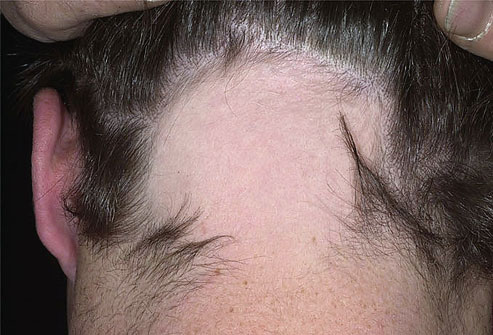
7 / 18
In alopecia areata, your immune system mistakenly attacks hair follicles, causing hair to fall out -- often suddenly. Most people will have one or two bald patches, which can be treated easily with injections but in some cases all body hair falls out. Alopecia areata isn't harmful or contagious, but it can be tough psychologically. Hair may grow back on its own, and treatment may help it grow back more quickly. Unfortunately, some people may experience alopecia areata repeatedly.
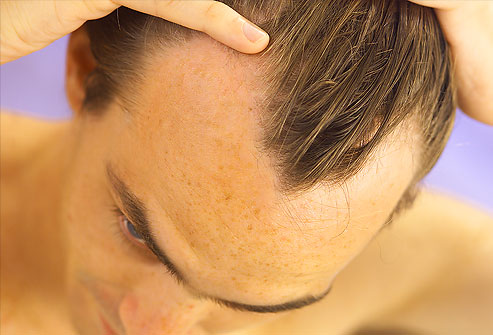
8 / 18
Though hereditary, the trait may be more influenced by your mother's family than your father's. So a look at your maternal grandfather's locks may give you a better clue about the future of yours. Male pattern baldness often starts with receding hair at the temples, then on the crown, leaving a horseshoe-shaped ring of hair around the sides of the head. Medications to slow hair loss include finasteride (Propecia) and minoxidil (Rogaine).
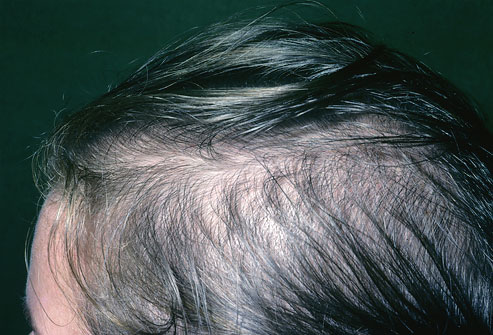
9 / 18
Age-related thinning may mean hair thinning all over the head, but pattern hair loss is usually most common on top of the head. Unlike men, women rarely go bald, and they tend to lose hair more slowly than men do. Contrary to popular belief, longer hair won't put a strain on the roots, causing more to fall out. Nor will shampooing pull hair out -- it just gets the ones that were falling out already. Minoxidil 5% applied once daily may help hair growth and prevent thinning. Spironolactone and Flutamide (oral medications) can also be used in women.

10 / 18
Too much sun can turn your hair into a brittle, dry mop that breaks and splits easily. This is especially true in those with blonde or grey hair. And if you already have thinning hair, you risk a sunburn on your scalp. Choosing hair care products with sunscreen provides some protection, although it can be hard to coat your hair evenly. That's why it's a good idea to wear a hat when you're out in the sun -- especially if your scalp is exposed. Choose a hat made of sun-protective fabric with UPF 30 (ultraviolet protection factor).

11 / 18
Could a crash diet cost you your hair? In extreme cases, it could. Your hair needs protein and iron to stay healthy, along with omega-3 fatty acids, zinc, and vitamin A, but not too much -- which can promote hair loss. Very low-calorie diets are often lacking in sufficient nutrients and can stunt hair growth or leave hair dull and limp. If the nutritional deficiency is big enough -- like for someone with an eating disorder -- hair can fall out.

12 / 18
Help keep hair shiny by eating salmon and walnuts for omega-3 fatty acids; spinach and carrots for vitamin A; brazil nuts for selenium; and oysters and cashews for zinc. All help maintain scalp and hair health, as do low-fat dairy, whole grains, and vegetables. Double the results: Foods good for your hair are also good for your heart.
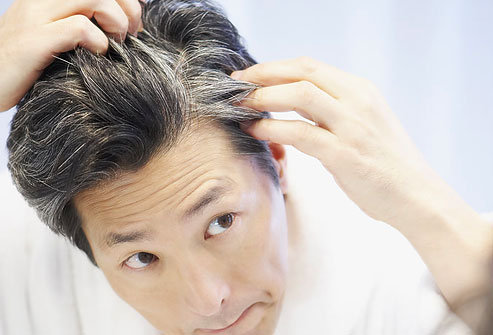
13 / 18
Going gray isn't always related to aging. If you're not yet 40 and see more than a few gray hairs, chances are it runs in your family. Gray usually isn't a sign of poor health, though anemia, thyroid issues, vitamin B12 deficiency, and vitiligo can cause premature graying. You can highlight or color hair to cover the gray, but beware: Some people are sensitive to the chemicals in dyes. The result could be an itchy, burning scalp.
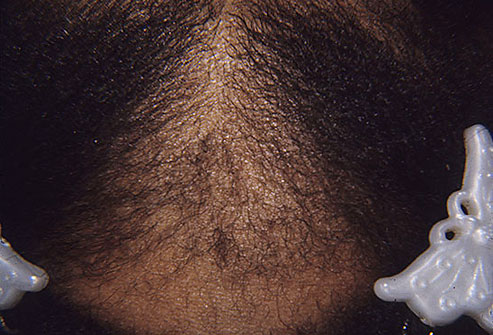
14 / 18
Pulling hair too tight -- as can happen with ponytails, braids, and cornrows -- can damage hair follicles and cause hair to break or fall out. Hair extensions and hairpieces can sometimes cause traction alopecia, too, because their extra weight pulls on existing hair. Changing your hairstyle usually lets hair grow back. Pulling hair back tightly for a long time, though, can lead to permanent hair loss.
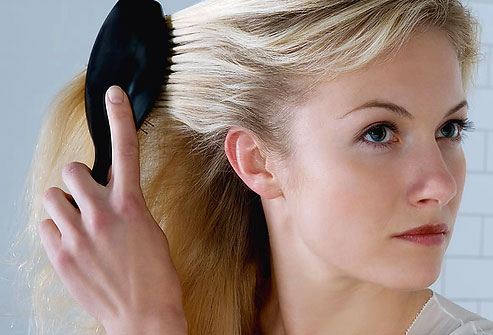
15/ 18
Blow drying, using a flat iron, coloring, bleaching, even over-brushing -- all can damage the outer layer (cuticle) of your hair. When the inner core of hair is exposed, your locks become dry and dull. Although it doesn't cause any permanent health damage, you can overstyle to the point that your only option for healthy hair is to cut it off and start over. When it comes to your hair, doing less leads to healthier tresses.

16 / 18
Among the medications that list hair loss as a side effect are anticlotting drugs, cholesterol-lowering drugs, antidepressants, nonsteroidal anti-inflammatory drugs (NSAIDs), and drugs for menopause, birth control, and antibiotics. Usually, hair grows back when the medication is stopped, but may not in some cases.
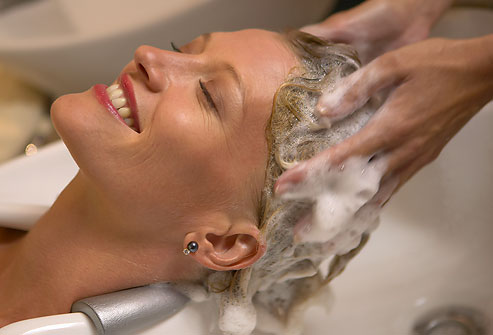
17 / 18
There's no evidence that massaging your scalp will slow hair loss or improve any scalp conditions -- but it can do wonders to relieve stress. Your scalp is covered with nerve endings that make it super-sensitive to touch. Rubbing your scalp may help release tension. Massage may also trigger the release of feel-good hormones like dopamine and serotonin.
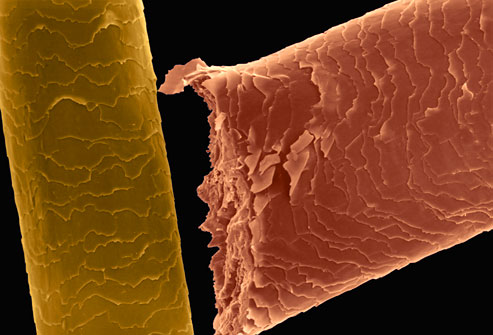
18 / 18
Some companies claim they can analyze hair clippings to see if you are deficient in vitamins or have health problems. Although hair analysis can detect some poisons like lead or arsenic, findings can be inconsistent and varied. Everything from air pollution to shampoo may affect test results. The American Medical Association is against hair analysis to determine treatment.

